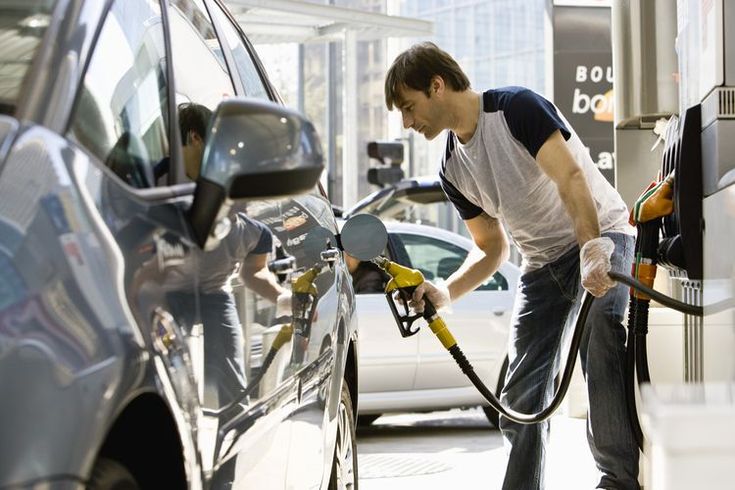Introduction
In today’s world, where environmental concerns and rising fuel costs are at the forefront, improving fuel efficiency has become a paramount goal for every car owner. Whether you’re driving a compact sedan or a spacious SUV, there are numerous ways to optimize your vehicle’s fuel consumption without sacrificing performance. In this comprehensive guide, we’ll delve into the top strategies that can help you save money, reduce emissions, and contribute to a greener planet while enjoying your driving experience.
Tips for Improving Fuel Efficiency in Cars
Driving Habits Matter: Fuel Efficiency Starts with You
Your driving habits play a significant role in your vehicle’s fuel efficiency. By adopting a few simple practices, you can make a noticeable difference in your car’s gas mileage. Here are some effective strategies to consider:
1. Smooth Acceleration and Braking
Gently pressing the accelerator and brakes can go a long way in conserving fuel. Rapid acceleration followed by sudden braking not only wastes energy but also wears down your brakes faster. By anticipating traffic flow and applying gradual pressure, you can enhance your fuel economy.
2. Maintain a Consistent Speed
Using cruise control on highways helps maintain a constant speed, which is more fuel-efficient than frequent speed changes. This steady pace allows your car’s engine to operate optimally, leading to better mileage.
3. Avoid Idling
Idling consumes fuel unnecessarily. If you anticipate being stopped for more than a minute, such as at a railroad crossing, it’s more efficient to turn off the engine and restart it when you’re ready to move.
4. Reduce Unnecessary Weight
Carrying excess weight in your vehicle can decrease fuel efficiency. Remove items from your trunk and roof rack that you don’t need for your trip. Every extra pound adds up and affects your gas mileage.
5. Use Air Conditioning Wisely
Running your car’s air conditioning at full blast can strain the engine and reduce fuel efficiency. On hot days, consider using the car’s flow-through ventilation or opening windows at lower speeds to cool down.
6. Plan Efficient Routes
Take advantage of navigation apps to find the shortest and quickest routes to your destination. Minimizing time spent in traffic or taking detours can help you save fuel.
Driving Maintenance: Keeping Your Car in Top Shape
Regular vehicle maintenance is crucial not only for longevity but also for fuel efficiency. A well-maintained car operates more smoothly, maximizing fuel economy. Here’s how you can keep your vehicle in optimal condition:
7. Keep Your Tires Properly Inflated
Underinflated tires create more rolling resistance, forcing the engine to work harder and consume more fuel. Check your tire pressure regularly and keep them inflated to the manufacturer’s recommended levels.
8. Use the Right Motor Oil
Using the correct motor oil for your vehicle can improve fuel efficiency by reducing friction within the engine. Refer to your owner’s manual to determine the best oil viscosity for your car.
9. Replace Air Filters
Clean air filters allow for better airflow to the engine, ensuring efficient combustion. Replace them at recommended intervals to prevent a drop in fuel efficiency.
10. Maintain a Healthy Engine
A well-tuned engine operates efficiently, so adhere to the recommended maintenance schedule. Fixing issues like a faulty oxygen sensor can lead to substantial improvements in fuel economy.
11. Check the Gas Cap
A loose or damaged gas cap can lead to fuel evaporation, reducing your car’s overall efficiency. Make sure the gas cap is tightly secured after refueling.
Embracing Fuel-Efficient Technologies
Modern vehicles come equipped with advanced technologies designed to enhance fuel efficiency. Understanding and utilizing these features can make a significant difference in your car’s gas mileage:
12. Start-Stop Systems
Some vehicles are equipped with start-stop systems that automatically turn off the engine when idling and restart it when you press the accelerator. This feature can save fuel, especially in city driving.
13. Aerodynamic Design
Manufacturers are increasingly designing cars with improved aerodynamics to reduce drag and improve fuel efficiency. Consider this when choosing your next vehicle.
14. Hybrid and Electric Options
Hybrid and electric vehicles are highly fuel-efficient and eco-friendly. If you’re in the market for a new car, explore these options to significantly cut down on fuel consumption.
15. Tire Technology
Certain tires are designed to reduce rolling resistance, contributing to better fuel efficiency. When replacing tires, opt for models that are labeled as low rolling resistance.
16. Eco-Driving Apps
Utilize smartphone apps designed to provide real-time feedback on your driving habits. These apps can help you make adjustments and cultivate fuel-efficient driving skills.
Frequently Asked Questions
Q: Does using premium gasoline improve fuel efficiency?
A: In most cases, using premium gasoline does not provide a noticeable improvement in fuel efficiency unless your vehicle’s manufacturer specifically recommends it.
Q: Can aggressive driving lower my fuel efficiency?
A: Yes, rapid acceleration, frequent braking, and speeding can significantly reduce your gas mileage.
Q: Do fuel additives enhance fuel efficiency?
A: While some fuel additives claim to improve Fuel Efficiency in Cars, their impact is often negligible. Focus on proper vehicle maintenance and driving habits for better results.
Q: How often should I change my car’s air filter?
A: It’s generally recommended to change your car’s air filter every 12,000 to 15,000 miles or as specified in your owner’s manual.
Q: Are electric cars more fuel-efficient than traditional gasoline cars?
A: Yes, electric cars are known for their exceptional fuel efficiency as they rely on electricity instead of gasoline.
Q: Can I improve fuel efficiency through regular engine tune-ups?
A: Absolutely, a well-maintained engine performs more efficiently, leading to improved fuel economy.
Conclusion
By implementing these expert-recommended tips for improving fuel efficiency in cars, you can become a more eco-conscious and cost-effective driver. Remember, small changes in your driving habits and vehicle maintenance routine can lead to substantial fuel savings over time. With a commitment to smart driving and responsible car care, you’ll not only enjoy the benefits of increased fuel economy but also contribute to a cleaner environment.
